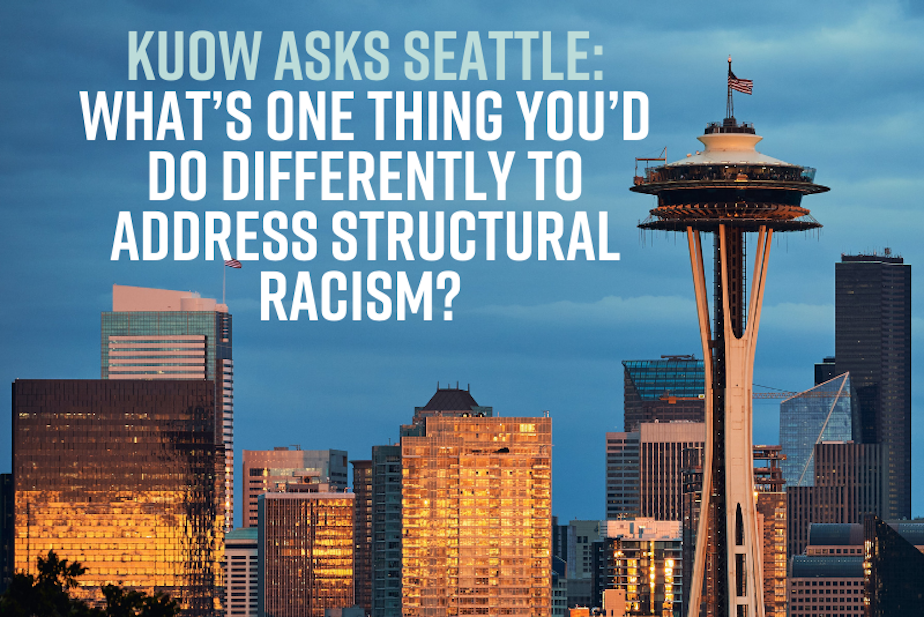KUOW asks Seattle: What’s one thing you’d do differently to address structural racism?

KUOW is asking Seattle voters the same questions it is asking candidates for mayor in the 2021 primary election. This week, we asked about structural racism.
Read listener and reader responses below.
The following answers are from KUOW listeners across Facebook, Twitter, and our online feedback form.
KUOW listener Thomàs S. in North Seattle said that doesn't have an environment that "fosters telling the truth." They write: "Embrace all views and encourage 'peace through true understanding.' And tell the truth."
Sponsored
"Why do you call our present culture 'structural racism?' That is the problem," another KUOW listener commented.
RELATED: How would Seattle's mayoral candidates address structural racism?
"I would task educators with designing a curriculum on structural racism for primary, middle and high schools and implement it ASAP and invite citizens to participate in the Unconscious Bias Study through Harvard University, or create one just for Seattle," Freda J. wrote. "I would offer a public apology to generations of people who have been harmed by structural racism."
"I'd reform (note, not defund!) the police, using the Camden model," another listener wrote to KUOW.
Sponsored
Camden, N.J. has prompted debate over police reforms ever since the city rebuilt its police department in 2013. The city has since stood out with greater rates of decline in violent crimes and excessive force than many other US cities.
"I would implement a Social Officers division of the police force. Trained social workers that are unarmed and ready to insert themselves into communities non-aggressively, from a place of compassion and empathy. Although at the ready to call on law enforcement who would be aware of such situations and ready to respond," Carry K. wrote to KUOW. "Also, I would put more beat cops in communities that share their same ethnicity and lose the Call of Duty uniform and go back to nicely-dressed officers. We don't need body cams, we need bodies."
As NPR has reported, one study by Morgan Williams favors the theory that more police officers leads to fewer homicides and fewer crimes.
"Williams and his coauthors find that, in the average city, larger police forces result in Black lives saved at about twice the rate of white lives saved (relative to their percentage of the population). When you consider African Americans are much more likely to live in dense, poverty-stricken areas with high homicide rates — leading to more opportunities for police officers to potentially prevent victimization — that may help explain this finding."
However, NPR has also reported about a another study that concluded the prevalence of police-worn body cameras in recent years has meant that "complaints against police dropped by 17% and the use of force by police, during fatal and non-fatal encounters, fell by nearly 10%."


